Webinars
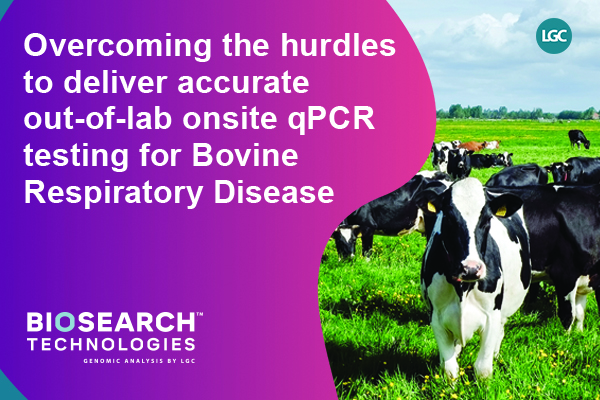
Overcoming the hurdles to deliver accurate out-of-lab onsite qPCR testing for Bovine Respiratory Disease
Bovine respiratory disease (BRD) costs the global livestock industry over $2 billion per year. In this twenty-minute webinar, Dr Ian Marsh explains the projects aims and the successful outcomes of their research on using onsite qPCR to test for BRD.
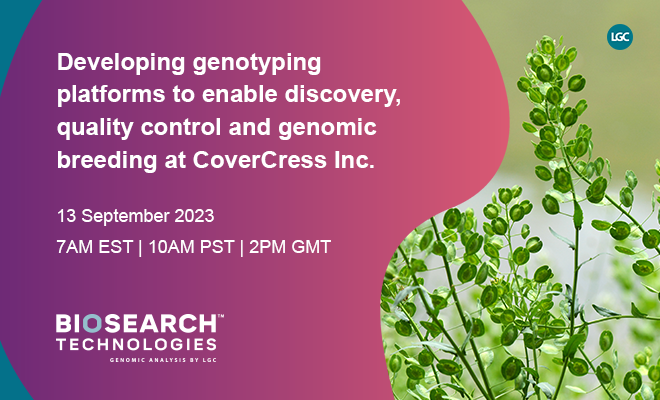
Developing genotyping platforms to enable discovery, quality control and genomic breeding at CoverCress Inc. (“CCI”) in partnership with LGC Biosearch Technologies
This webinar describes key genotyping platforms identified through a partnership of CCI and LGC Biosearch Technologies which will then be used in various applications of CoverCress™ product development. These projects demonstrated the flexibility of genotyping platforms for applications within the CCI program. We have started implementing one of these genotyping platforms - Flex-Seq™ that covers 5,000 unique regions in the genome to aid in genetic mapping, genomic selection, and fingerprinting of lines. We anticipate data accuracy, reproducibility, and coverage of the genome will allow us to deliver future products on accelerated timelines.
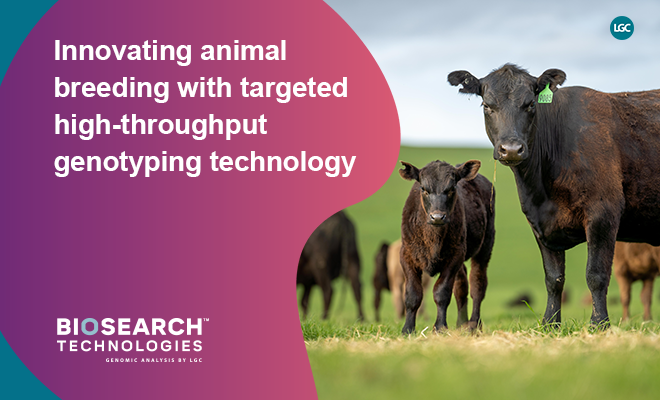
Innovating animal breeding with targeted high-throughput genotyping technology
In this workshop, our industry expert will be showcasing how innovation and creativity are being leveraged to overcome technical hurdles in the application of genomic technologies to accelerate your breeding programme through high-throughput genotyping via PCR and next generation sequencing (NGS).
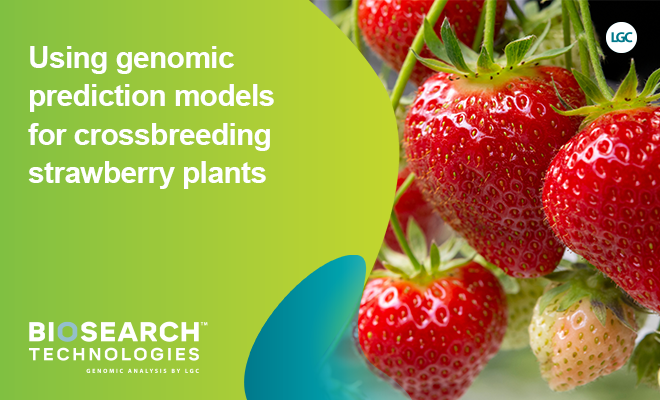
Large-scale genotyping in strawberry genomic selection
Watch Dr Isobe of the Kazusa DNA Research Institute explain how large-scale genotyping can deliver a data driven breeding programme to significantly enhance breeders’ ability to produce superior innovative varieties of strawberries.
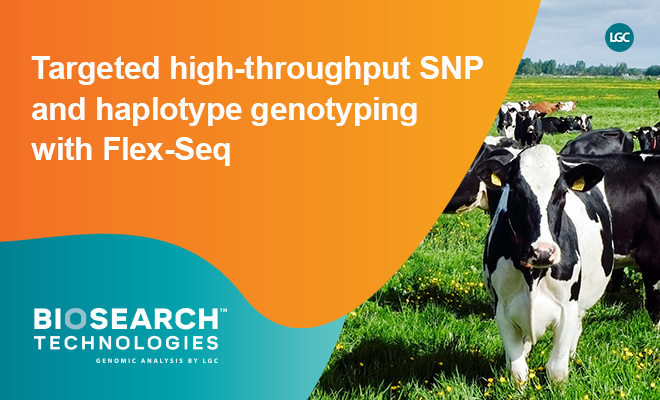
Targeted, fast and effective sequencing-based genotyping to characterize with Flex-Seq
In this webinar, Dr. Leandro Neves, President and CEO of Rapid Genomics, now part of LGC Biosearch Technologies, will speak about the advanced sequencing capabilities of Flex-Seq™ and the tangible solution it delivers for next generation sequencing exploration of plants and animals.
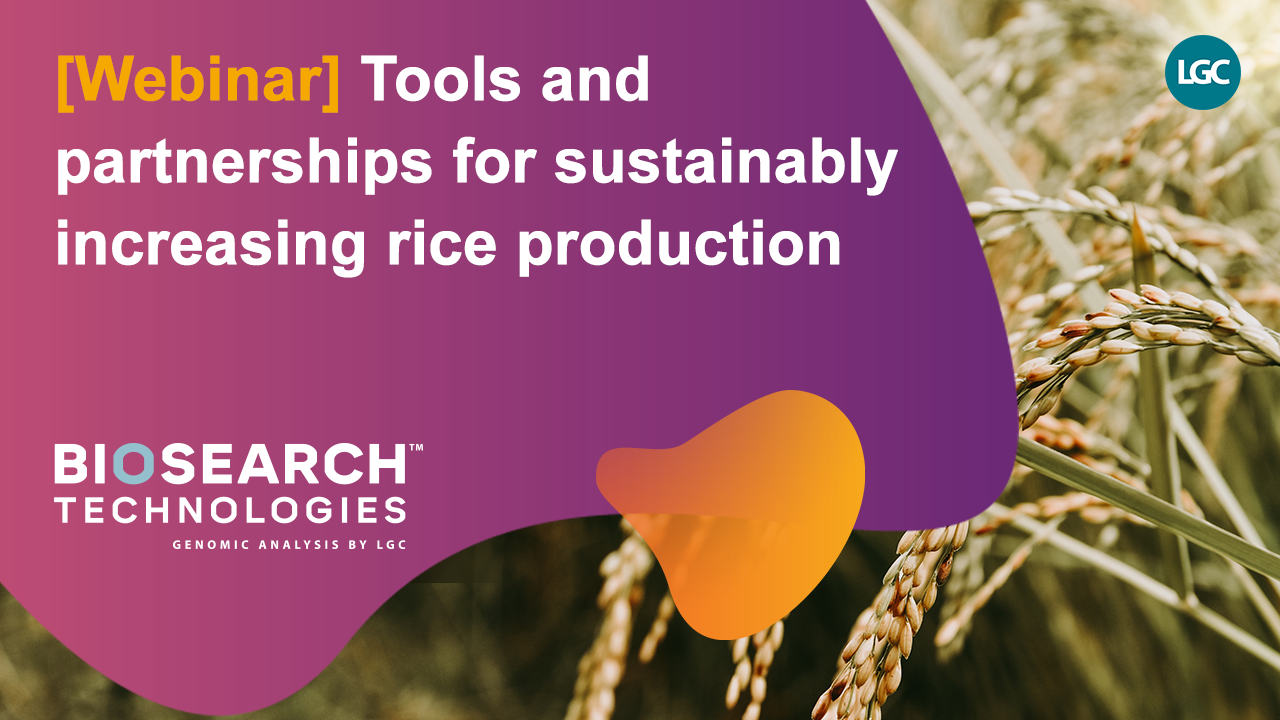
Tools and partnerships for sustainably increasing rice production
Improving rice to withstand diseases, climate-related stresses and reduced inputs will contribute to food security and socio-economic benefits worldwide. Breeding for yield and resilience can be more efficient with molecular markers. This Webinar describes how partnerships were developed between academics, public sector rice breeders and a biotechnology company to develop, utilise and promote new molecular marker tools for rice.
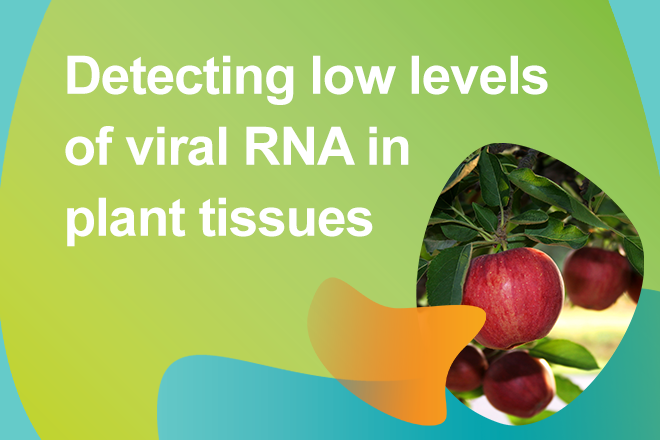
Needle in a haystack - Detecting low levels of viral RNA in plant tissues
In this webinar, our expert speaker will share his approach for screening large numbers of samples for relevant viruses in a single workflow - including LGC Biosearch Technologies’ HybCap technology in conjunction with NGS - to develop broad-spectrum, high-throughput virus screening in horticultural crops.
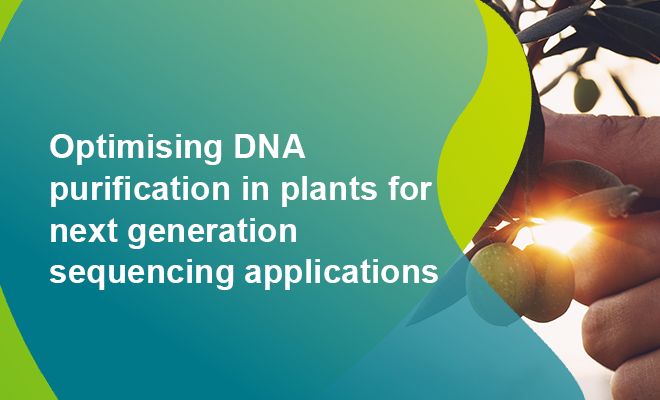
Optimising DNA purification in plants for next generation sequencing applications
DNA purification is a key step in producing high-quality nucleic acids suitable for next generation sequencing (NGS) and a range of other downstream molecular genotyping techniques. Although NGS approaches are now commonly used in plant breeding programmes, the vast number of diverse plant species and their highly varied characteristics still make it difficult to purify DNA at the quality and scale required. LGC, Biosearch Technologies works with challenging plant sample types alongside customers as well as within our service labs to develop off-the-shelf and custom sbeadex™ purification workflows in tandem with our high-throughput extraction platform.

Celebrating advances in agrigenomics with “SuperSheroes”: women scientists using technology to seed global change
In the COVID-19 era, maintaining food security and agriculture supply chain resilience have never been more critical, as are the technology choices to address these challenges. In this webinar, the spotlight is on three “SuperSheroes,” women scientists who are seeding global change in agriculture by championing modern genomics that promote sustainability, efficiency, and optimal breeding workflows.

KASP technology accelerates rice improvement in South Asia
Global rice production is increasing but there is diversity in productivity across Asia, with some regions suffering yield losses from disease, adverse weather and insufficient irrigation.There is opportunity for breeders to improve both abiotic and biotic stress response with an optimised approach for their varieties in the region.

Lerna Biopharma's liver regeneration story
In this webinar, Dr Torsten Wuestefeld, Co-founder and Advisor at Lerna Biopharma and Dr. Si Hui Tan, Vice President of Biology at Lerna Biopharma, talk about how they are combining novel biology with proprietary nucleic acid technology and delivery platforms to innovate and accelerate therapeutic development for liver diseases with high unmet need.
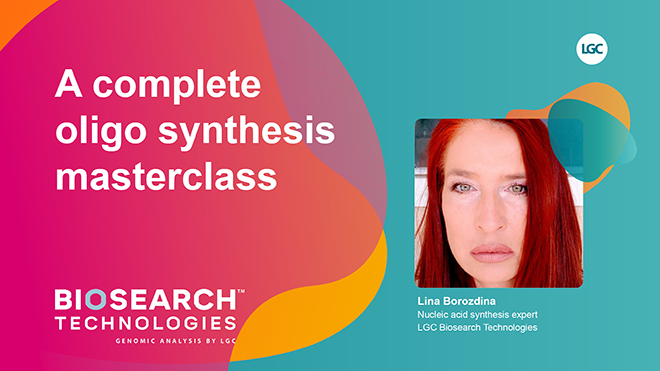
A complete oligo synthesis masterclass
Listen to nucleic acid synthesis expert Lina Borozdina deliver a complete class on oligo synthesis starting from the fundamentals of oligo chemistry, through to information on essential reagents and techniques, instrumentation, and finishing with advice on how to set up your laboratory for successful oligo synthesis.
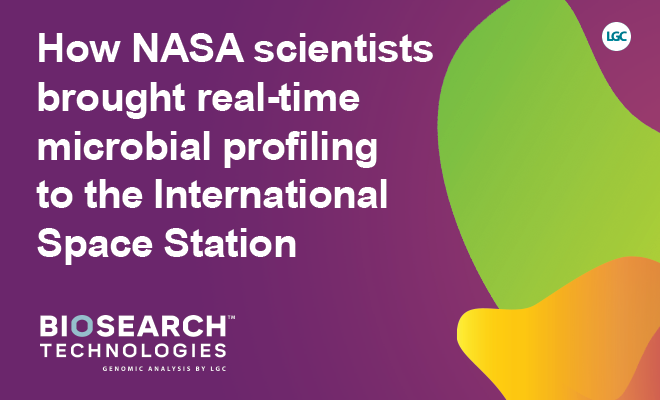
How NASA scientists brought real-time microbial profiling to the International Space Station
In this webinar, we speak with spaceflight microbiologist Sarah Stahl-Rommel to hear more about NASA’s journey from initial development to implementation, how their method has been streamlined to be completed by a non-trained crew member in an extreme environment, and how they are using customised reagents to enable environmental and human health diagnostics in real-time as future missions take them beyond low-Earth orbit.
.png)
Developing the 5 minute point-of-care PCR test
In this webinar, Andrew Anyakwo, Head of Reagent Development at LEX Diagnostics, will give a unique insight into how the LEX team developed a low-cost, point-of-care PCR test that aims to diagnose SARS-CoV-2 and Flu A/B in just 5 minutes with high sensitivity and specificity.
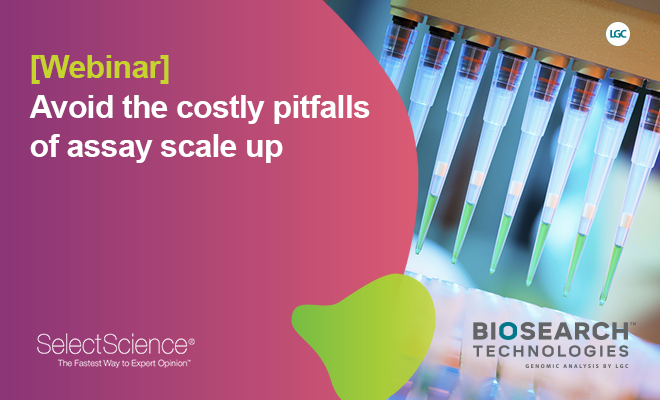
How to avoid costly pitfalls of assay scale up
A multi-disciplinary panel of R&D scientists covering the entire scope of assay design and development, and a POCT regulatory approval expert discuss the many issues assay designers face when scaling up to commercialisation. Learn how to avoid the costly pitfalls that each aspect of the process can present and find out more about the regulatory approval journey for POCT assays in cartridges.

IVDR: Understanding the transitional provision
As the countdown begins to the EU IVDR date of application, are you aware of which requirements will apply to all devices starting May 2022, and what products are impacted by the updated transitional arrangements?

Fighting antimicrobial resistance in sexually transmitted infections with targeted diagnostics
In this webinar, three experts in their fields discuss how they were able to combine their expertise to deliver a resistance-guided therapy approach for the successful treatment and management of sexually transmitted infections (STIs), particularly in Mycoplasma genitalium.
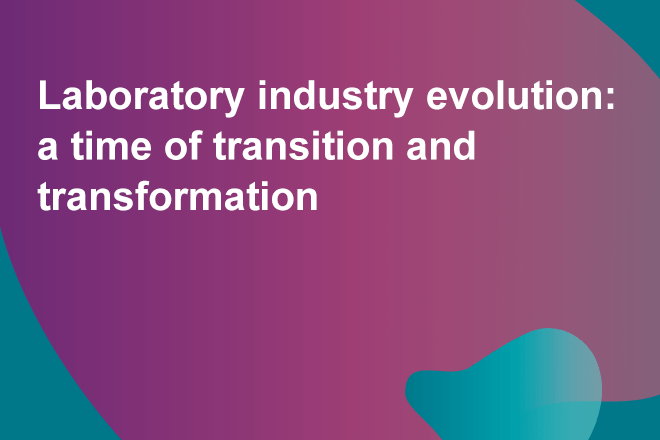
Laboratory Industry Evolution: A Time of Transition and Transformation
In this webinar, Jane Hermansen, outreach and network development manager at Mayo Clinic Laboratories, will discuss how laboratory professionals have learned, grown and used the experience of the SARS-CoV-2 pandemic and technology to create better laboratories for the future.

A lesson from COVID-19 on the dangers of using Cq to quantify nucleic acids
Panel discussion on lessons learned from the pandemic to improve SARS-CoV-2 measurements and promote reproducibility across labs worldwide.
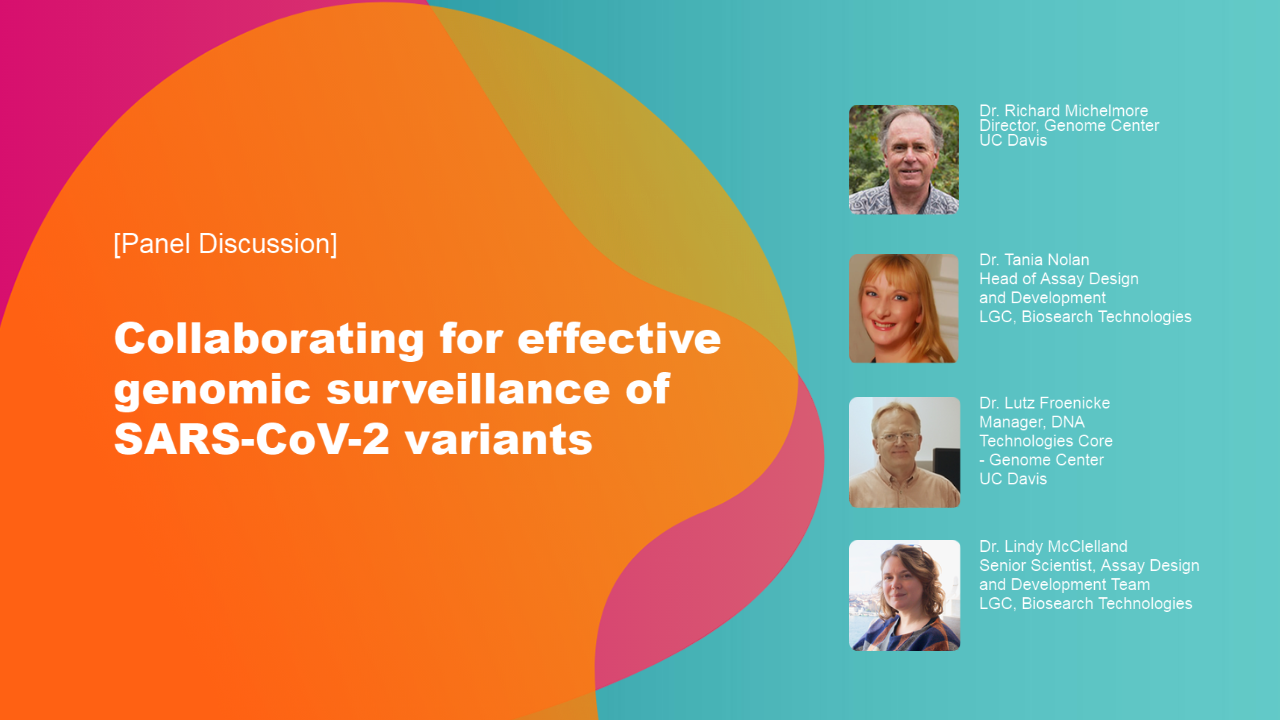
Collaborating for effective genomic surveillance of SARS-CoV-2 variants
Watch this on-demand panel discussion to see how open, global collaboration among scientists enabled continuous evolution of PCR assays for accurate detection of emerging SARS-CoV-2 mutations.
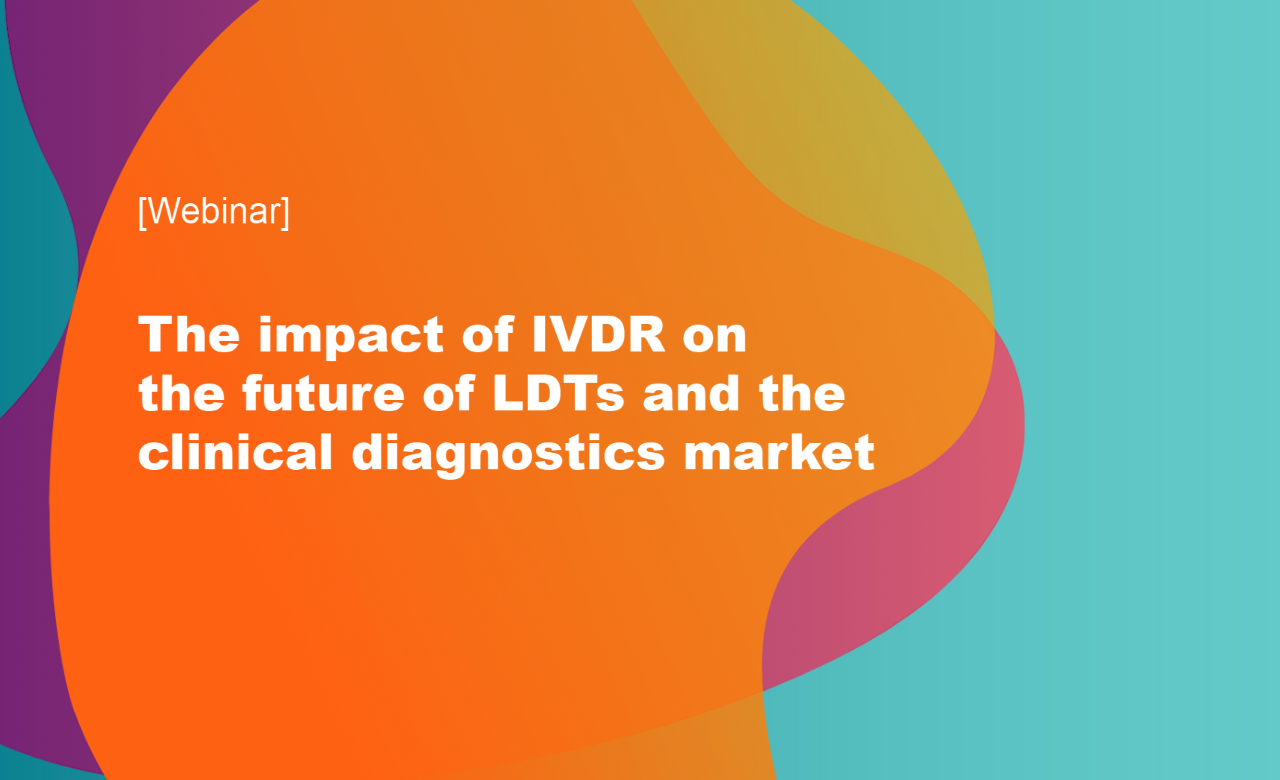
The impact of IVDR on the future of LDTs and the Clinical Diagnostics market
Fourth panel discussion in a series to help you develop an action plan

Commercial readiness in light of IVDR
Third panel discussion in a series to help you develop an action plan

Getting ready for IVDR
This panel discussion will help you develop an action plan to prepare for IVDR.

Case Study: Deployment of High-Throughput SARS-CoV-2 Testing at UC Davis
Diverse components of the UC Davis campus have been mobilized to deploy HTP testing to provide a safe working environment and keep the pandemic under control. These efforts are being integrated with the Healthy Davis Together initiative, which is providing free testing for everyone in the City of Davis. The goal is to provide at least weekly testing combined with more frequent strategic testing. This requires rapid data analysis software that minimizes the time needed to accurately call, certify, and return results.
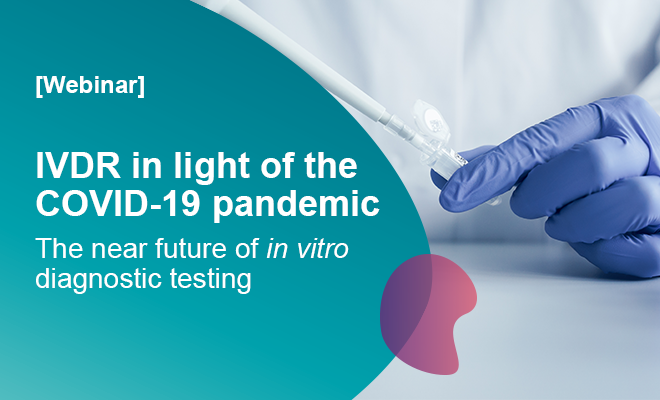
IVDR in light of the COVID pandemic: the near future of in vitro diagnostic testing
The COVID-19 pandemic created a paradigm shift in modern healthcare, where regulations, protocols, and mindsets had to be reworked in just a matter of months to keep up with the pace of the virus. In particular, the in vitro diagnostic (IVD) market experienced a dynamic never seen before: SARS-CoV-2 tests were developed at a record-breaking pace amid global supply shortages as labs struggled to keep up with unprecedented demand.

[Panel discussion] How to establish COVID-19 diagnostics and keep up with demand
To get a grip on this COVID-19 outbreak and flatten the curve of infection, extensive diagnostic testing is crucial. With the rapid increase in testing volume and the subsequent shortages on tests and components, ensuring adequate COVID-19 diagnostics has presented a real-life challenge for laboratories.

Rapid Response to the Coronavirus Outbreak: How Collaboration Meets the Challenge
As the outbreak of 2019 Novel Coronavirus, also known as COVID-19, makes headlines on a daily basis, molecular diagnostic firms are rapidly responding by developing tests that assist in diagnosing the disease and support outbreak control.

Development of a Novel Multiplex Assay: A Partnership Case Study
This webinar will provide a behind-the-scenes look at the collaborative development of a novel multiplex assay to speed detection of mosquito-borne illness in the clinical setting.
